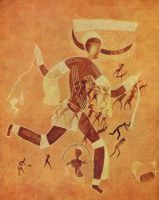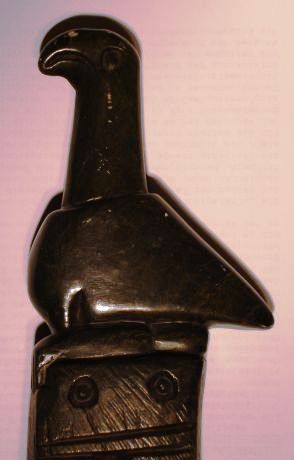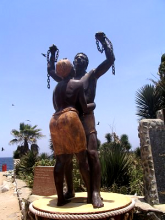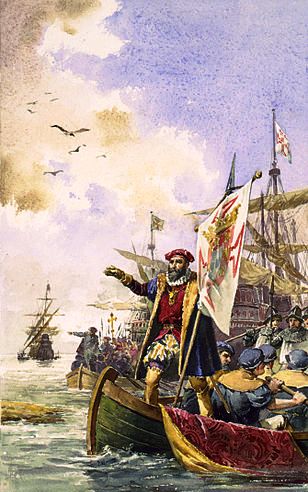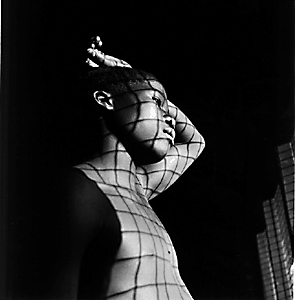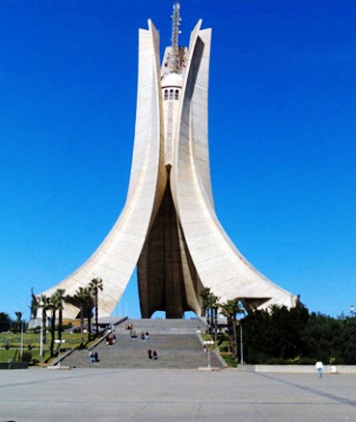History
Africa, the Cradle of Mankind
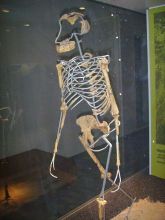
In Ethiopia, East Africa, researchers discovered the skeleton of Lucy. The bones of Lucy are about 3.5 million years old, the oldest fossils of mankind. Lucy could go on two legs as we do. She could climb on trees to be safe against dangerous predators. She lived by gathering wild plants and by scavenging meat that stronger animals had killed.A million and a half years later the descendants of Lucy used stone tools. 800 000 years ago they began to use fire. Using fire was a milestone in the development of mankind. Genetic evidence shows that about 60 000 years ago Africa was the only place on earth where modern people lived. They recorded the wildlife with whom they lived so closely in the rock paintings of Algeria, Namibia, Simbabwe and South Africa. The oldest found rock paintings are in the caves of Twerkfontain, which is called the “cradle of mankind”.
North Africa and Ancient Civilisations
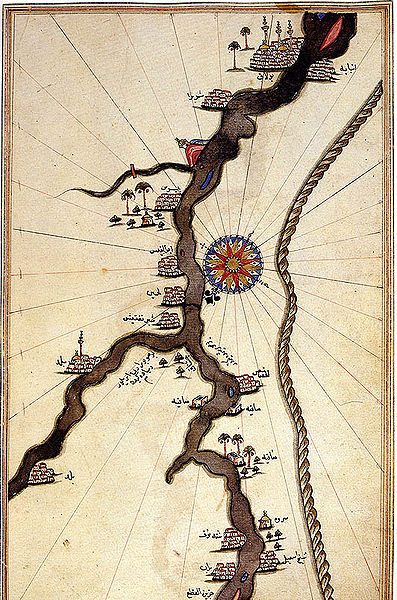
About 6000 years ago the climate changed and it became warmer and drier. Some of the fertile land turned into desert. It was hard for the people to find food and they began to settle down and to farm. The first settlements were built on the fertile shores of the river Nile where people grew grain and fruits. With the farming the population expanded quickly and the first kingdoms developed. The Egyptian kingdom of the pharaos arose from these settlements 3000 BC. In the southern valleys of the Nile the kingdom of Kush (modern Sudan) developed. The Kushites learned how to make modern weapons. They used their knowledge to become more powerful. By 900 BC the Kushites conquered the land of the pharaos. !The best known black Pharaoh who ruled Egypt was Taharqa. By 200 BC many parts of northern Africa were conquered by the Romans. The old Kingdom of Kush was taken over by a kingdom to their south called Aksum (modern Ethiopia). Many people converted to Christianity.
West Africa and Ancient Civilisations
In the 3rd century BC, in the inland delta of the Niger river, one of the oldest yet known urban centres was founded: “Jenné-jeno”. This city was an urban civilisation without monumental architecture or spectacular artefacts. It seemed to exist without hierarchy, without dominant state power. Unusual for the ancient world and even for the world of today! The people living in West Africa called the Bantu hadn’t yet played a dominant role in African history. The Bantu lived in the Congo Basin and along the Niger river.
African Kingdoms in the Middle Ages
The Niger river and its middle region was the cradle of most of the West African kingdoms in the middle ages. Like the ancient empire of former Jenne- jeno and like the empires in East Africa they were built on agriculture and gold. Three kingdoms arised along the trading routes on the southern fringe of the Sahara: Old Ghana, Mali and Songhay. Old Ghana was the first kingdom to rise via the accounts of Muslim traders, drawn across the desert by the lucrative trade in gold in West Africa. It dominated the region in the eighth century but later weakened. In Central Africa another kingdom arose: Great Zimbabwe. The founders were descendants of the Bantu people. They built the first stone palaces ever seen in this area. The symbol of the sophisticated religion and culture of Great Zimbabwe is the Zimbabwe Bird.
African Renaissance and the Timbuktu Manuscripts
The first historical mentions of Timbuktu, the legendary town in Mali, are from the 11th century; today the city built of loam is one of the World Heritage Sites. The city was founded by the Tuareg, a nomadic people roaming the Sahara. Situated on the south edge of that desert, only five miles from the Niger river, Timbuktu soon became a prospering trading centre.
“Read more(Africa Renaissance)”:/en/youth/history/african-renaissance-and-the-timbuktu-manuscripts.html
Slave Trade in African History
Maafa is a Swahili word and means “great desaster”. The word is used for one of the most sinister chapters in the history of mankind. Slavery was common to African, Arab, European and Asian societies long before the organized transatlantic slave trade began. But when the white men from Europe came into the land of stories the history changed tragically. They came at first by ship: the Portuguese, Dutch, English on the west coast and towards the south; the Arabs on the east. At first their needs were simple: water, fruit, fresh meat. Then they came in great numbers, in larger ships. They were in search of gold and ivory, salt, exotic skins and feathers, and above all they wanted slaves.
“Read more(slave trade)”:/en/youth/history/slave-trade-in-african-history.html
Colonialism in Africa
The ending of slave trade was not the end of the European influence on Africa. In the race for new colonies European powers began to occupy African territory. By the end of the 19th century the leaders of almost all of the European countries had divided the continent into colonies, without paying attention to the fact that they tore apart peoples and tribes. Many African states and rulers such as the Ashanti, the Abyssinians, the Moroccans sought to resist this wave of European aggression. However, the industrial revolution had provided the European armies with advanced weapons such as machine guns, which African armies found difficult to resist. The European powers dominated African peoples until the middle of the 20th century.
“Read more(Colonialismin africa)”:/en/youth/history/colonialism-in-africa.html
Shaka Zulu and the Rise of the Zulu Kingdom
At the beginning of the 19th century, Shaka Zulu was one of the most famous warriors in southern Africa. He was born at a time when small tribal groups were joining to become larger communities. His talents as a military leader, as well as his tremendous hunger for revenge, made him a key figure in the politics of south African countries.
“Read more(Shaka Zulu)”:/en/youth/history/shaka-zulu-and-the-rise-of-the-zulu-kingdom.html
Africa’s Independence
From the beginning of the colonization of Africa, there was a counter-movement of African people against European rule. But it was not before the First World War that the struggle for independence took on force. Both peaceful and bloody resistance to Colonial domination became more organized. When the Second World War left many of the European nations debilitated, their impact on the politics of the colonized countries decreased. A “wind of change” swept over the African continent, when the movement toward self-rule in India inspired the African people. By the mid-1960s, one African country after another was gaining political independence. For most African countries, attaining economic independence proved harder than gaining political independence. In some areas, drought and famine destroyed agricultural production; elsewhere, civil war hindered economic development.
Apartheid
While almost all African countries were independent by the mid-1960s, there was a contradictory development going on in South Africa. British and Dutch descendents of the first white settlements in the 17th century wanted to cut ties with Europe, but retain white minority rule. They shared their power in order to exclude the black African population from political and social life. They implemented a separate development for whites and non-whites by a series of laws. Their political program was called apartheid. The black South Africans started the anti-apartheid-movement and founded a party, called African National Congress, ANC. They were not successful before 1991, when the freedom fighter Nelson Mandela was released from prison and was elected the first black president of South Africa.
Africa Today
Most African civilizations could survive the colonial conquest. In some African countries today there is civil war, some countries are located in regions that are dry and poor, and in some countries epidemic diseases cost the life of many people. Many people could preserve their culture and the beauty of their land. Today some countries are democracies and the people are living peacefully together. In these countries schools and universities are built, the people are creating perspectives for the future of their children and send signs of hope into the world.
Learn more about African history and African empires in the following books:
African Beginnings by James Haskins, Kathleen Benson.
Ancient Africa (Chester Comix with Content) by Bentley Boyd.
The Royal Kingdoms of Ghana, Mali, and Songhay: Life in Medieval Africa. By Patricia McKissack, Frederick McKissack
Kings and Queens of West Africa. By Sylvaine A. Diouf.

